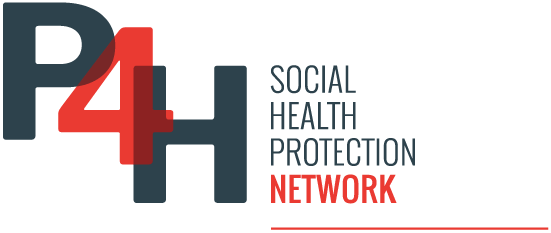The funding of the health sector in Sierra Leone is a major challenge, as the limited fiscal space has been further constrained by the economic impact of the COVID-19 pandemic. There are significant funding gaps for the Life Stages Approach, National Health Sector Strategic Plan, Health Financing Strategic Plan, and Plan of Action in the Aide Memoire. The Ministry of Health and Sanitation (MoHS) plans to advocate for increased budget allocation from the Ministry of Finance, but this may be limited by the available funding envelope.
To address these gaps, the MoHS plans to explore new and innovative revenue sources.
The high debt profile of Sierra Leone presents an opportunity for debt swaps, which can convert bilateral debt into domestic revenue and provide additional funding for the health sector by using annual debt service amounts.
A debt swap also known as the debt2health program refers to a situation in which a creditor country ‘forgives’ the debt of another country provided the latter can invest repayments in specific mutually agreed health system outcomes. The Global Fund (GFATM) has championed the use of this instrument in supporting countries to generate revenues for health. So far, Germany and Spain have been documented as utilizing this instrument to support health in some countries with significant success.
As with most reforms that potentially affect the flow of funds (e.g. Who gets it? Who controls it? Who is losing control of it?), this reform is inherently political. Therefore, for countries that wish to explore this instrument, an understanding of the political economy is critical. All key stakeholder groups, their levels of influence and position must be identified. A proper appreciation of these is the first step in defining an action plan for advocacy and implementation that addresses and mitigates all anticipated challenges. Making the case for all swapped funds to be moved to the health ministry may be difficult, especially in countries with constrained fiscal spaces. The MoF would ideally prefer all swapped funds to be under its control and then assigned to different sectors of the economy, not just health, based on identified need. Sometimes, when debt swaps are discussed, they are mistaken for debt relief and may lead to concerns in the global markets that the country seeking to swap debts is likely to default on its loans and other financial obligations. The MoF may be wary of sending such signals. It is important to flag that with a debt swap, the debtor country still needs to generate the monies that would have been used to service debts. These monies, however, will be used in the health sector rather than being paid to the bilateral creditor. Therefore, the MoF is a key stakeholder for this reform and it is critical to properly understand the ideas, ideologies and interests that underpin this ministry’s stance, ensure that evidence is generated to address these, consistently monitor for windows of opportunity and utilize these and every available leverage to further the case for swaps.
A good advocacy platform for debt swaps could be a community of practice drawing membership from countries that have participated in swaps, countries that are considering the instrument and others that are in the process.
Sharing lessons learned, pointing out potential roadblocks and drivers of progress could help support more countries that are looking at opening up their fiscal spaces.
With debt swaps, representation certainly matters and so, having countries from different regions within this platform will be useful in addressing context-specific questions. In Sierra Leone, initial tripartite meetings have been held between MoF, MoHS and GFATM to align on how to take these discussions forward. If successful, this instrument will expand the fiscal space for health in Sierra Leone and release additional funds that can support the achievement of health system goals. Specifically, debt swaps can help to reduce the risk of catastrophic health expenditure, improve access to and quality of health care as they can provide additional resources to fund health services and reduce the need for individuals and families to pay out of pocket for health care, moving the country one step closer to universal health coverage.
Dr Nkechi Olalere is a GFF/World Bank-funded consultant supporting the Minister of Health and Sanitation in Sierra Leone as the Special Advisor on Health Economics. She also serves as the country focal person for P4H. In keeping with the mission of P4H, she is supporting this reform by serving as a neutral facilitator of connections and conversations while navigating the political economy.
Disclaimer: The responsibility for opinions expressed in this blog lies solely with its author(s). This disclaimer applies to any means of dissemination, distribution or publication of said blog at any time.


